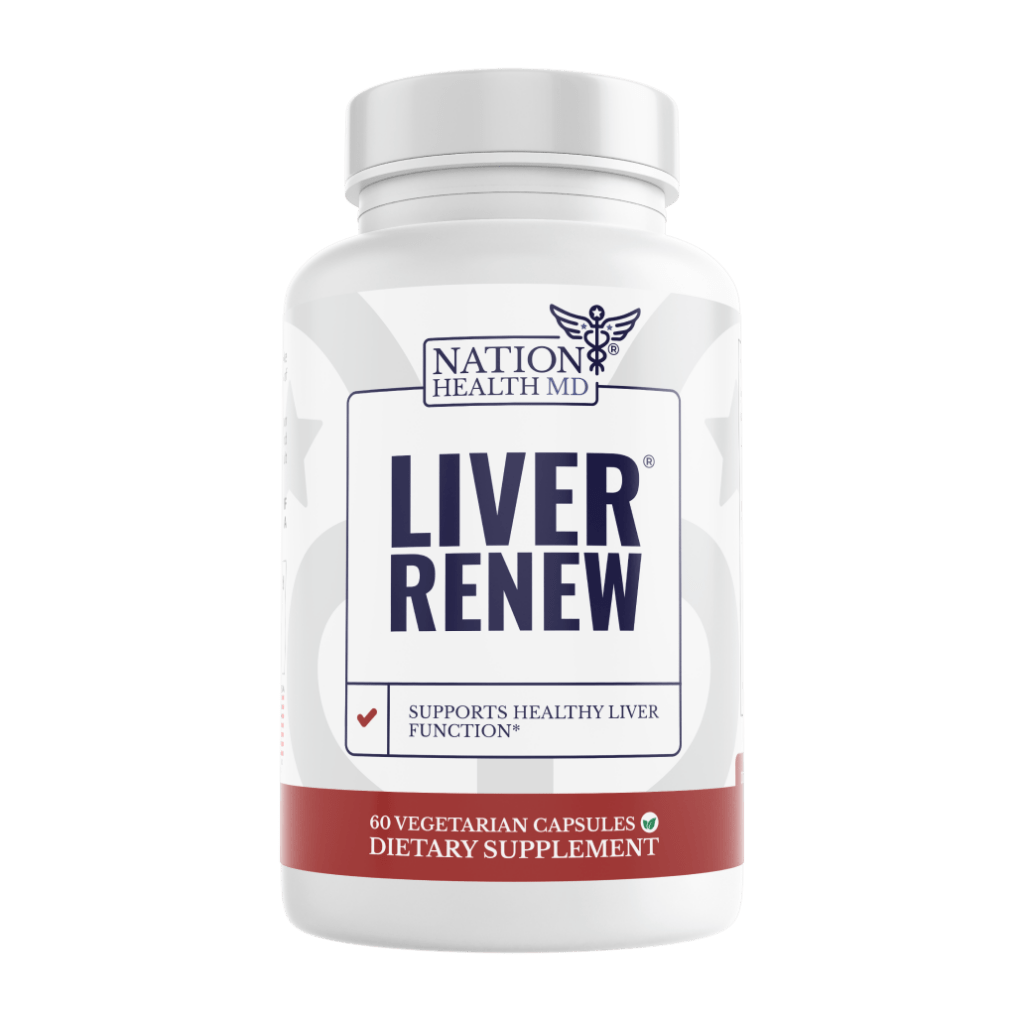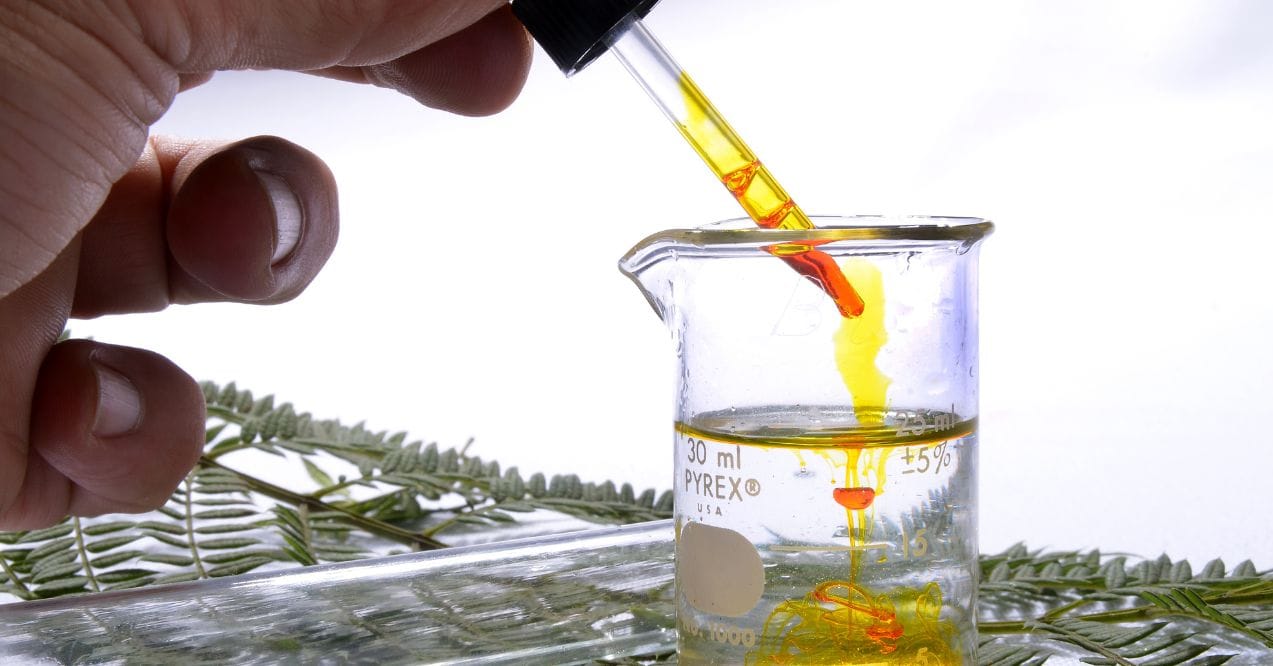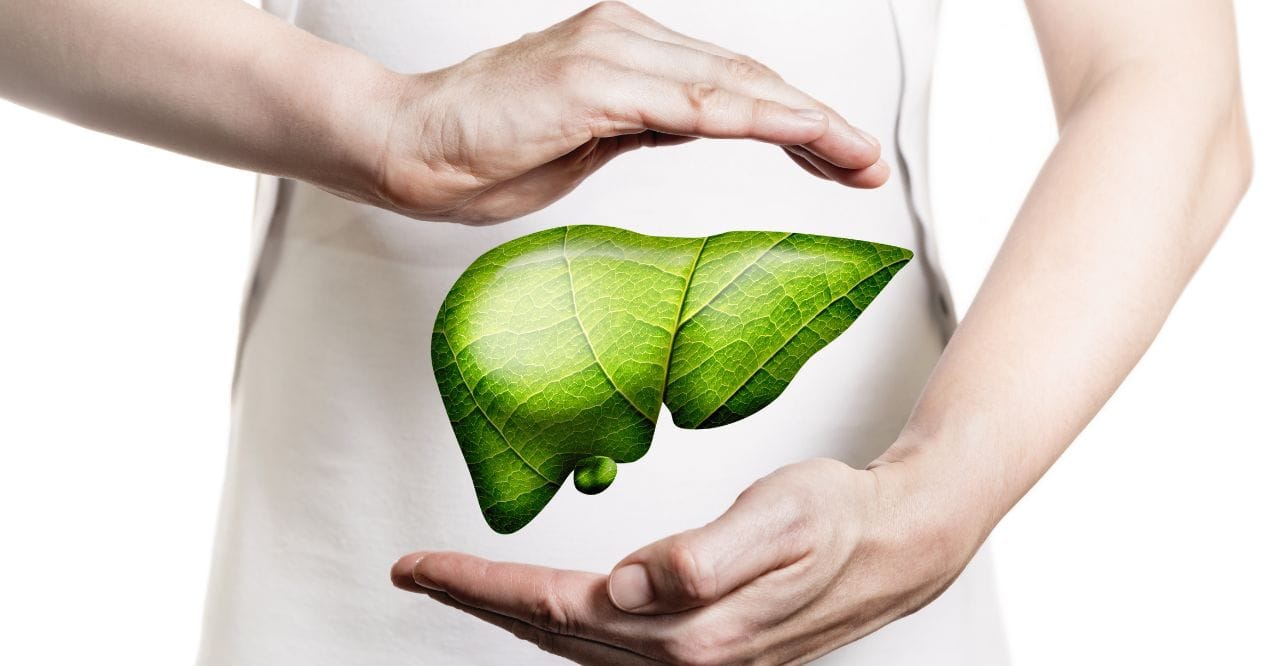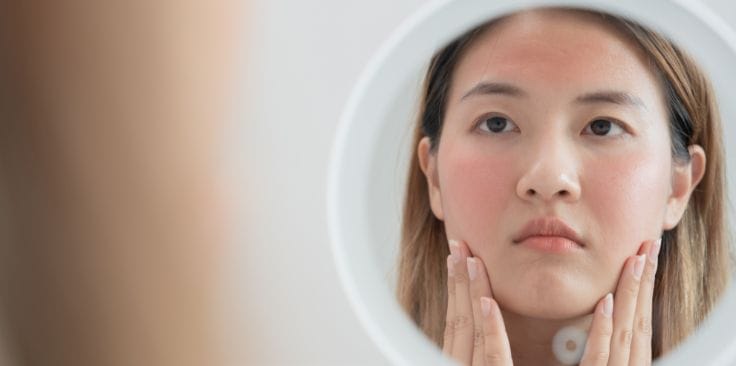What Does Turmeric Do For Your Skin?
Medically reviewed by our experts
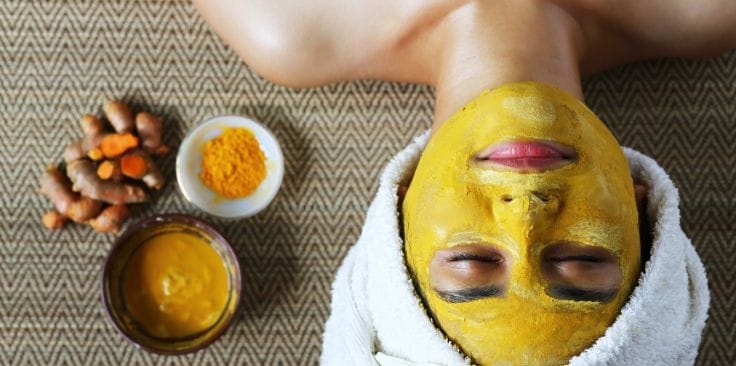

What does turmeric do for your skin? This golden-hued spice, widely known for its history in wellness and culinary traditions, has earned a place in skincare thanks to its impressive skin-supportive properties. Turmeric has been traditionally valued for its potential to promote a vibrant appearance and to support skin resilience, setting the stage for its many skin benefits. In this post, we’ll explore how turmeric can be incorporated into your skincare routine and the possible effects it can have on maintaining a healthy, glowing complexion.
What Makes Turmeric Beneficial for Skin?
So, what does turmeric do for your skin? Turmeric skin benefits come primarily from its active compound, curcumin. Curcumin is renowned for its potent anti-inflammatory and antioxidant properties. These characteristics are what contribute to turmeric benefits for skin. Curcumin interacts with various molecular targets in the body, making turmeric skin benefits a topic of interest in modern dermatology. Additionally, turmeric contains vitamins and minerals that support overall skin health. Its unique composition allows it to integrate effectively into skincare routines, highlighting why it’s considered beneficial for the skin.
Turmeric Benefits for Skin
- Brightening and Even Skin Tone – Turmeric can help reduce hyperpigmentation, leading to a more even skin tone. Its active compound, curcumin, may inhibit melanin production responsible for dark spots. By incorporating turmeric into your skincare routine, you might achieve a brighter complexion over time. So, what does turmeric do for skin? It promotes a more uniform and radiant appearance.
- Anti-Inflammatory Properties – Curcumin in turmeric has anti-inflammatory effects that may alleviate redness and swelling. This is beneficial for sensitive skin or conditions causing irritation. By reducing inflammation, turmeric supports a calmer complexion, enhancing skin comfort and health.
- Antioxidant Effects – Rich in antioxidants, turmeric neutralizes free radicals that can cause skin damage and premature aging. By neutralizing these harmful molecules, it may reduce the appearance of fine lines and wrinkles, helping maintain youthful-looking skin. Incorporating turmeric into your skincare can offer protective benefits against environmental stressors.
- Promotes a Healthy Glow – Using turmeric can promote a healthy glow by revitalizing dull skin. It may improve skin texture and tone, resulting in a more radiant appearance. So, is turmeric good for your skin? By supporting overall skin health, turmeric contributes to a vibrant and glowing complexion.
How to Use Turmeric in Your Skincare Routine
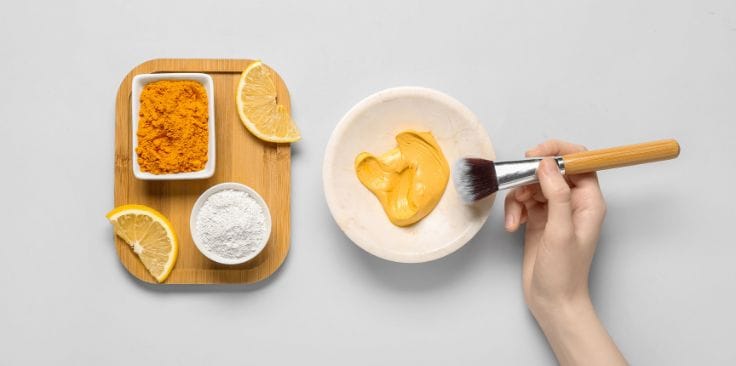
- DIY Face Mask – Mix a small amount of turmeric powder with honey or yogurt to create a gentle face mask. Apply once or twice a week for a natural glow and to support an even skin tone.
- Turmeric Creams or Serums – Choose skincare products with turmeric extract for easy incorporation into your daily routine. These products provide the benefits of turmeric without the need for mixing or preparation.
- Spot Treatment – For targeted areas, mix a pinch of turmeric with aloe vera gel. Apply to dark spots or areas needing extra care, leaving on for a few minutes before rinsing.
Tips for Safe Use:
- Use turmeric sparingly, as high concentrations may cause temporary yellow staining.
- Always mix with a carrier ingredient like yogurt or coconut oil.
- Patch-test on a small area of skin before applying to ensure no sensitivity.
Product Spotlight – Liver Renew for Skin Health
Enhance your skin from within by supporting liver health with Liver Renew. The liver plays a key role in detoxifying the body, filtering out impurities that, if accumulated, can impact skin appearance. Liver Renew from Nation Health MD combines natural, high-quality nutrients to support this vital process.
Milk Thistle’s silymarin raises antioxidant defense against free radical oxidative stress, while turmeric’s curcumin offers powerful antioxidant support. Artichoke extract supports liver enzyme function, promoting effective detoxification. Together, these ingredients help reduce the liver’s workload, which may lead to clearer and more radiant skin.
By strengthening liver health, Liver Renew supports your skin’s natural glow and encourages a healthier appearance. This formula works from the inside out, contributing to vibrant, well-nourished skin by helping maintain liver balance. Embrace a revitalized look with Liver Renew and feel the benefits of a healthier, well-supported liver.
Are There Any Side Effects of Using Turmeric on Skin?

While turmeric is generally safe for most skin types, there are some potential side effects to consider. In high concentrations, turmeric can cause temporary yellow staining on the skin, which may take a few washes to fade. Some individuals with sensitive skin might experience mild irritation or redness when using turmeric for the first time.
To avoid any unwanted reactions, a patch test is recommended, especially for sensitive skin types. Apply a small amount of turmeric-based product to a discreet area and wait 24 hours to see if any irritation occurs. So, is turmeric good for skin? Yes, but it’s essential to use it cautiously.
Conclusion
Understanding what does turmeric do for your skin highlights its unique ability to promote a balanced, glowing complexion. With anti-inflammatory, antioxidant, and brightening properties, turmeric offers natural support for common skin concerns. When used carefully in your skincare routine, it can enhance radiance and evenness.
For a holistic approach, combining topical turmeric use with a focus on internal health can further benefit skin. By integrating both external and internal care, you can maximize turmeric’s potential for a healthier, more vibrant appearance, making it an excellent addition to any skincare routine.
Turmeric is known for its antioxidant properties that support skin clarity and even tone. It can help maintain a bright and balanced complexion by promoting skin vitality and reducing the appearance of dullness.
Yes, turmeric supports skin health by promoting a clear complexion and providing antioxidants. Regular use can enhance the skin’s natural glow and contribute to a vibrant appearance.
Turmeric may support skin hydration by encouraging a healthy moisture barrier. When used in skincare products, it can provide a nourishing boost to maintain a radiant and balanced complexion.
Menon, V. P., & Sudheer, A. R. (2007). Antioxidant and anti-inflammatory properties of curcumin. Springer eBooks, 105–125.
Vaughn, A. R., Branum, A., & Sivamani, R. K. (2016). Effects of Turmeric (Curcuma longa) on Skin Health: A Systematic Review of the Clinical Evidence. Phytotherapy Research, 30(8), 1243–1264.
Cherney, K. (2024). Can DIY turmeric face masks benefit your skin? Healthline.
Griffin, R. M. (2023). Turmeric (Curcumin). WebMD.
Wolnicka-Glubisz, A., & Wisniewska-Becker, A. (2023). Dual Action of Curcumin as an Anti- and Pro-Oxidant from a Biophysical Perspective. Antioxidants, 12(9), 1725.
Silver, N. (2023). Turmeric for skin: benefits and risks. Healthline.
Gillessen, A., & Schmidt, H. H. (2020). Silymarin as supportive Treatment in liver Diseases: A Narrative review. Advances in Therapy, 37(4), 1279–1301.
Amini, M. R., et al. (2022). Effects of artichoke supplementation on liver Enzymes: A Systematic Review and Meta-Analysis of Randomized Controlled Trials. Clinical Nutrition Research, 11(3), 228.
Popular Articles
Advertisement. This site offers health, wellness, fitness and nutritional information and is designed for educational purposes only. You should not rely on this information as a substitute for, nor does it replace, professional medical advice, diagnosis, or treatment. If you have any concerns or questions about your health, you should always consult with a physician or other health-care professional. Do not disregard, avoid or delay obtaining medical or health related advice from your health-care professional because of something you may have read on this site. The use of any information provided on this site is solely at your own risk.
